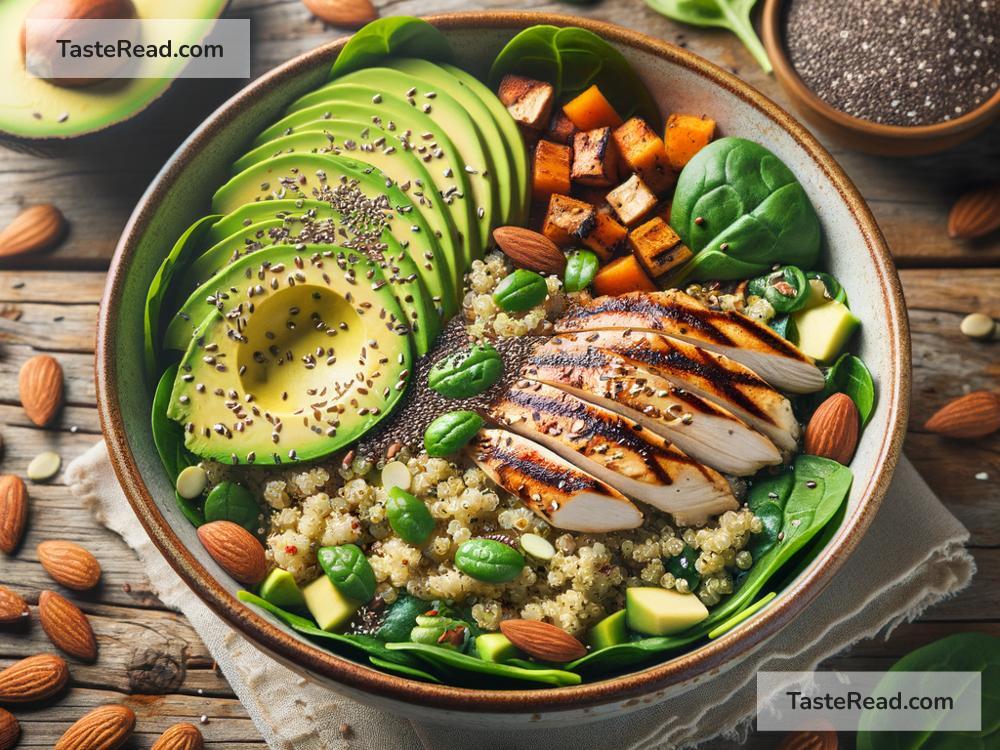Foods to Boost Your Body’s Energy Production: Supporting ATP Synthesis Naturally
Energy fuels everything we do, from walking to working out to even thinking. In our bodies, the main source of energy is a molecule called ATP (adenosine triphosphate). ATP powers every cell in your body, helping them perform critical tasks. Think of ATP like the battery that keeps your engine running. But just as batteries need recharging, your body depends on certain nutrients to efficiently produce ATP.
So, how can you give your body the right fuel to optimize ATP production? The answer lies in your diet! Let’s explore foods that can support ATP synthesis and keep your energy levels high.
What Is ATP and Why Does It Matter?
ATP is often called the “energy currency” of your cells. It’s created in tiny cell structures called mitochondria, where food is broken down to release energy. This process is called cellular respiration, and it’s what keeps your muscles moving, organs functioning, and brain thinking.
The synthesis of ATP depends on nutrients like glucose, amino acids, and fatty acids, as well as vitamins and minerals that support mitochondrial function. If you want to keep your internal energy factories running smoothly, eating the right foods is crucial.
Top Nutrients for ATP Production
Before diving into the best foods for ATP synthesis, let’s review the main nutrients your body uses:
- Carbohydrates: Broken down into glucose, which is a primary fuel for ATP.
- Proteins: Provide amino acids that support mitochondrial function.
- Healthy Fats: Offer a steady source of energy to produce ATP.
- Vitamins and Minerals: Critical cofactors for enzyme activities involved in ATP synthesis, such as B vitamins, magnesium, and iron.
- Antioxidants: Protect mitochondria from oxidative stress, helping them function effectively.
Foods to Enhance ATP Synthesis
Here are some easy-to-find foods packed with nutrients that your cells crave for ATP production.
1. Whole Grains (Brown Rice, Quinoa, Oats)
Whole grains are rich in complex carbohydrates, which break down slowly into glucose. Glucose is your body’s go-to energy source for making ATP. Unlike refined grains (e.g., white bread or pasta), whole grains also provide fiber, B vitamins, and minerals like magnesium, which support energy metabolism.
Why it helps: Whole grains release energy gradually, keeping your ATP production steady over time.
2. Leafy Green Vegetables (Spinach, Kale)
Leafy greens like spinach and kale are packed with magnesium, a mineral essential for activating enzymes involved in ATP synthesis. They are also rich in antioxidants that protect mitochondria from damage caused by free radicals.
Why it helps: Magnesium supports cellular energy production, while antioxidants keep your mitochondria healthy.
3. Fatty Fish (Salmon, Mackerel, Sardines)
Fatty fish are loaded with omega-3 fatty acids and protein, both of which fuel the mitochondria for steady ATP production. Omega-3s also improve mitochondrial function and reduce inflammation, which can otherwise impair energy synthesis.
Why it helps: Healthy fats and amino acids ensure efficient energy production over long periods.
4. Nuts and Seeds (Almonds, Walnuts, Chia Seeds)
Nuts and seeds contain healthy fats, proteins, magnesium, and even small amounts of iron—all crucial for ATP synthesis. They are also a quick, portable snack that can keep your energy levels up during busy times.
Why it helps: Nuts provide a balance of macronutrients and micronutrients critical for energy metabolism.
5. Eggs
Eggs are a complete protein source, meaning they contain all nine essential amino acids your body needs. They are also rich in choline, a nutrient that supports mitochondrial health and energy production.
Why it helps: Protein builds enzymes and compounds necessary for ATP synthesis.
6. Bananas
Bananas are the ultimate natural energy booster, thanks to their high levels of carbohydrates and potassium. Potassium is an electrolyte that helps regulate cell energy balance and supports muscle function.
Why it helps: Quick energy and electrolyte balance enhance ATP production, especially during physical activity.
7. Sweet Potatoes
Sweet potatoes are packed with complex carbohydrates and vitamin C, which acts as an antioxidant to protect mitochondria. Their fiber content also supports healthy energy output over time.
Why it helps: Long-lasting energy and mitochondrial protection promote consistent ATP output.
8. Lean Meat (Chicken, Turkey, Beef)
Lean meats are a rich source of protein and iron, which are vital for ATP synthesis. Iron helps deliver oxygen to your cells, which is necessary for the process of cellular respiration.
Why it helps: Oxygen and protein work together to power mitochondrial activity.
9. Dark Chocolate
Dark chocolate contains compounds like magnesium, iron, and polyphenols. Polyphenols are potent antioxidants that improve mitochondrial health and protect against fatigue caused by oxidative stress.
Why it helps: Dark chocolate provides a treat that’s both energizing and protective for your cells.
Drink Wisely: Stay Hydrated
While food is key, hydration is just as important for ATP synthesis. Water helps transport nutrients to your cells and assists enzymes involved in energy production. Even mild dehydration can slow down ATP creation, so drink plenty of fluids throughout the day.
Conclusion
Boosting energy doesn’t have to mean guzzling coffee or energy drinks. By eating nutrient-rich foods that support ATP synthesis, you can energize your body naturally and sustain your stamina over time. Whole grains, leafy greens, fatty fish, nuts, eggs, bananas, and sweet potatoes are all great choices to include in your diet.
Remember, ATP production is at the heart of how your body functions—so take care of your energy “battery” with the right nutrition. By making smart food choices, you’ll feel more vibrant and ready to tackle whatever life throws your way!


